VW Golf Variant VS Kia Stonic – Specs, Efficiency & Price Comparison
Which model is the better choice – the VW Golf Variant or the Kia Stonic? We compare performance (333 HP vs 100 HP), boot capacity (611 L vs 352 L), efficiency (4.40 L vs 5.50 L), and of course, the price (25200 £ vs 19400 £).
Find out now which car fits your needs better!
The VW Golf Variant (Estate) is powered by a Petrol MHEV, Petrol or Diesel engine and comes with a Automatic or Manuel transmission. In comparison, the Kia Stonic (SUV) features a Petrol or Petrol MHEV engine and a Manuel or Automatic gearbox.
When it comes to boot capacity, the VW Golf Variant offers 611 L, while the Kia Stonic provides 352 L – depending on what matters most to you. If you’re looking for more power, you’ll need to decide whether the 333 HP of the VW Golf Variant or the 100 HP of the Kia Stonic suits your needs better.
There are also differences in efficiency: 4.40 L vs 5.50 L. In terms of price, the VW Golf Variant starts at 25200 £, while the Kia Stonic is available from 19400 £.
Compare all the key specs now and find out which model fits your lifestyle best!
VW Golf Variant
The VW Golf Variant represents a seamless blend of practicality and style, catering to drivers who require extra space without compromising on aesthetics. Its refined design and spacious interior make it an ideal choice for families and individuals with an active lifestyle. With advanced technology and a smooth driving experience, this estate car continues to impress within its class.
details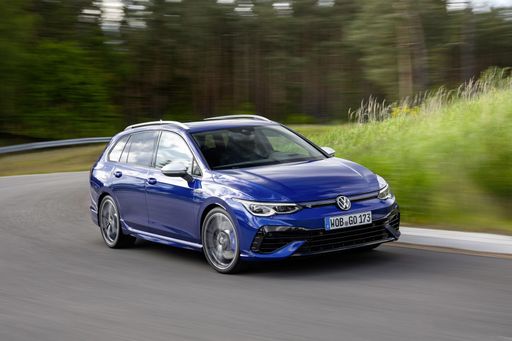 @ Volkswagen
@ Volkswagen
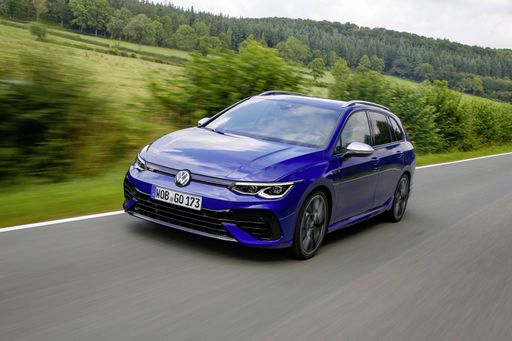 @ Volkswagen
@ Volkswagen
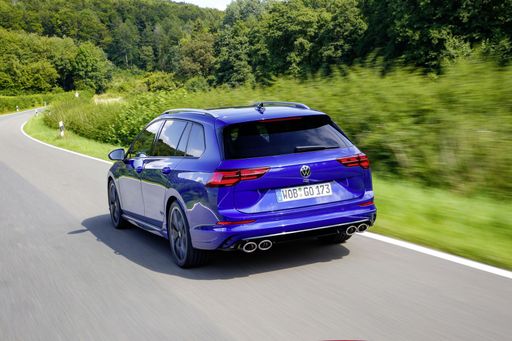 @ Volkswagen
@ Volkswagen
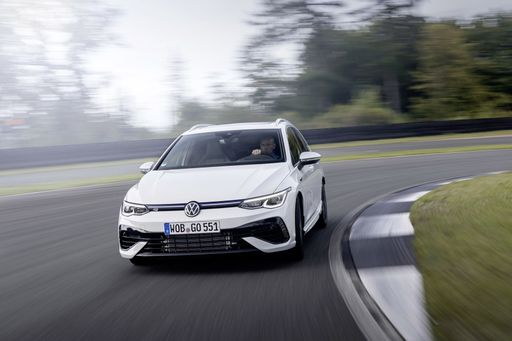 @ Volkswagen
@ Volkswagen
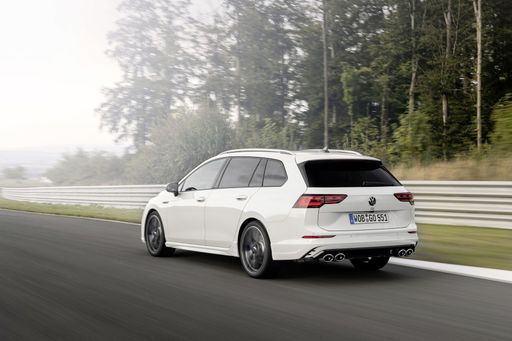 @ Volkswagen
@ Volkswagen
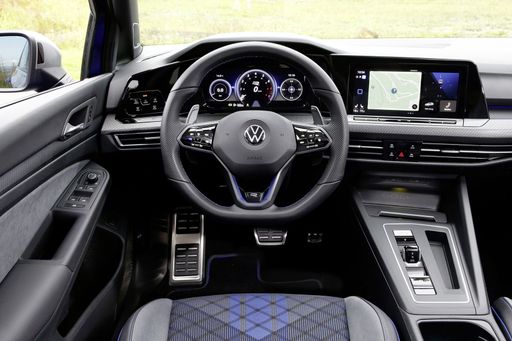 @ Volkswagen
@ Volkswagen
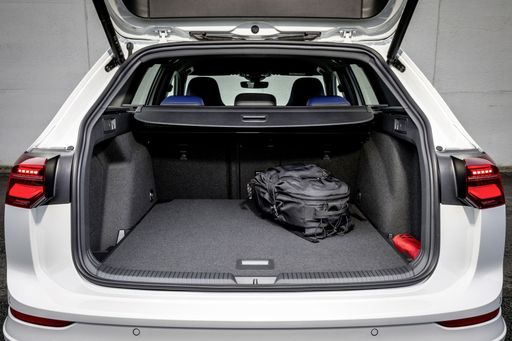 @ Volkswagen
@ Volkswagen
Kia Stonic
The Kia Stonic is a compact crossover that seamlessly blends bold design with practical functionality. Its distinctive, eye-catching exterior is complemented by a well-crafted interior offering a comfortable ride and intuitive technology for today's drivers. The Stonic is perfect for urban environments, providing agility and efficiency without compromising on style or performance.
details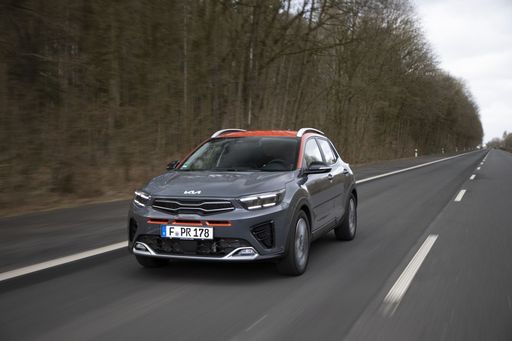 @ press.kia.com
@ press.kia.com
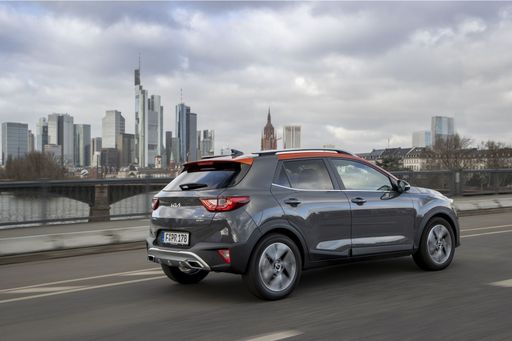 @ press.kia.com
@ press.kia.com
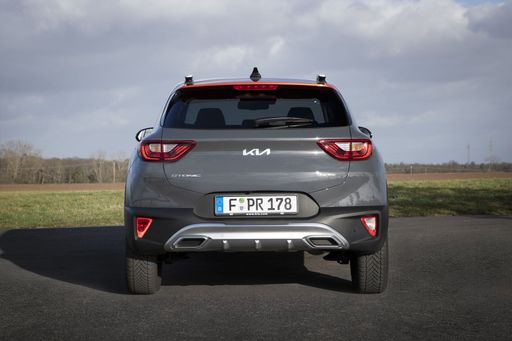 @ press.kia.com
@ press.kia.com
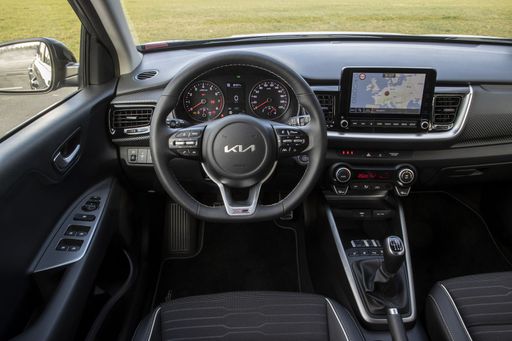 @ press.kia.com
@ press.kia.com
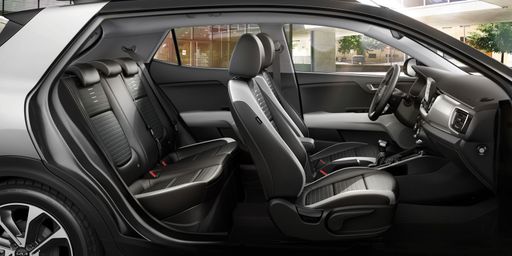 @ press.kia.com
@ press.kia.com

|

|
|
|
|
Costs and Consumption |
|
|---|---|
|
Price
25200 - 48200 £
|
Price
19400 - 25600 £
|
|
Consumption L/100km
4.4 - 8.2 L
|
Consumption L/100km
5.5 - 5.7 L
|
|
Consumption kWh/100km
-
|
Consumption kWh/100km
-
|
|
Electric Range
-
|
Electric Range
-
|
|
Battery Capacity
-
|
Battery Capacity
-
|
|
co2
115 - 185 g/km
|
co2
125 - 129 g/km
|
|
Fuel tank capacity
45 - 55 L
|
Fuel tank capacity
45 L
|
Dimensions and Body |
|
|---|---|
|
Body Type
Estate
|
Body Type
SUV
|
|
Seats
5
|
Seats
5
|
|
Doors
5
|
Doors
5
|
|
Curb weight
1366 - 1621 kg
|
Curb weight
1195 - 1260 kg
|
|
Trunk capacity
611 L
|
Trunk capacity
352 L
|
|
Length
4631 - 4651 mm
|
Length
4140 mm
|
|
Width
1789 mm
|
Width
1760 mm
|
|
Height
1462 - 1487 mm
|
Height
1505 mm
|
|
Payload
489 - 547 kg
|
Payload
450 - 455 kg
|
Engine and Performance |
|
|---|---|
|
Engine Type
Petrol MHEV, Petrol, Diesel
|
Engine Type
Petrol, Petrol MHEV
|
|
Transmission
Automatic, Manuel
|
Transmission
Manuel, Automatic
|
|
Transmission Detail
Automat. Schaltgetriebe (Doppelkupplung), Schaltgetriebe
|
Transmission Detail
Schaltgetriebe, Automat. Schaltgetriebe (Doppelkupplung)
|
|
Drive Type
Front-Wheel Drive, All-Wheel Drive
|
Drive Type
Front-Wheel Drive
|
|
Power HP
116 - 333 HP
|
Power HP
100 HP
|
|
Acceleration 0-100km/h
4.8 - 10.5 s
|
Acceleration 0-100km/h
11.3 - 12.4 s
|
|
Max Speed
202 - 250 km/h
|
Max Speed
176 - 179 km/h
|
|
Torque
220 - 420 Nm
|
Torque
172 - 200 Nm
|
|
Number of Cylinders
4
|
Number of Cylinders
3
|
|
Power kW
85 - 245 kW
|
Power kW
74 kW
|
|
Engine capacity
1498 - 1984 cm3
|
Engine capacity
998 cm3
|
General |
|
|---|---|
|
Model Year
2024
|
Model Year
2024 - 2025
|
|
CO2 Efficiency Class
D, C, G
|
CO2 Efficiency Class
D
|
|
Brand
VW
|
Brand
Kia
|
VW Golf Variant
The Versatile Allure of the VW Golf Variant
The VW Golf Variant continues to solidify its place in the automotive world as a resourceful and reliable estate car, sweeping across European roads with its sleek design and robust engineering. In the 2024 model year, VW introduces a range of technical enhancements and innovative features that elevate this standard bearer of practicality and performance.
Powertrains: Efficiency Meets Performance
Under the bonnet, the VW Golf Variant offers an impressive variety of powertrains designed to satisfy varying needs and driving conditions. From the refined 1.5 TSI petrol engines, available in manual and dual-clutch automatic transmission options, to the fuel-sipping 2.0 TDI diesel variants, the Golf Variant aims to strike a balance between performance and economy. Petrol mild-hybrid configurations further enhance efficiency, offering a smart blend of power delivery and reduced CO2 emissions.
Engine Specifications and Fuel Consumption
The power range spans from 116 PS in the entry-level models up to a robust 333 PS in the Volkswagen Golf Variant R, catering to those with a craving for speed and agility. Fuel consumption varies according to engine choice, starting as low as 4.4 L/100km for the efficient diesel models. Such performance is complemented with low CO2 emissions, aligning the vehicle with modern environmental standards.
Innovative Features and Technology
VW’s iconic estate car thrives on technology-driven advancements. With seamless integration of an advanced infotainment system and digital cockpit, driving becomes both intuitive and enjoyable. The variety of safety features, such as adaptive cruise control and lane-keeping assist, ensure confidence behind the wheel. Embracing a future-forward approach, the mild-hybrid variants introduce energy recuperation systems that optimise fuel usage, showcasing VW's commitment to sustainability.
Interior Comfort and Practicality
The VW Golf Variant is synonymous with comfort and spaciousness. With a commodious boot space of 611 litres, it accommodates families and professionals alike, making it an ideal choice for long journeys and everyday errands. High-quality materials adorn the interior, providing drivers and passengers with a sophisticated and comfortable environment.
Performance and Driving Dynamics
Driving enthusiasts will appreciate the Variant’s dynamic handling, facilitated by an array of engine choices and drivetrain configurations. Whether it's the front-wheel-drive versions that offer exceptional maneuverability or the 4MOTION all-wheel-drive option in the R variant providing enhanced traction, the Golf Variant promises an engaging driving experience.
Conclusion: A Staple for Modern Motoring
The 2024 VW Golf Variant stands as a testament to VW's legacy of developing cars that combine practicality, performance, and cutting-edge technology. Whether it is serving as a family car or a dynamic commuter, its various configurations ensure that it remains a formidable choice for a wide array of drivers.
Kia Stonic
A Versatile Compact SUV: Introducing the Kia Stonic
The Kia Stonic stands out in the ever-crowded market of compact SUVs, offering a blend of practicality and style underpinned by advanced technology. With its robust build and dynamic aesthetics, the Stonic is designed to appeal to those seeking versatility without compromising on performance and comfort. Let's delve into the technical details and innovations that make the Kia Stonic a compelling choice.
Powertrain Options: From Traditional to Mild-Hybrid
The Kia Stonic features a range of engine choices to cater to diverse consumer needs. The traditional petrol engines are available alongside modern mild-hybrid variants, offering both manual and automatic transmission choices. This flexibility is further bolstered by its front-wheel drive system, delivering a smooth and controlled driving experience. The power output ranges from 79 to 100 PS, with fuel efficiency figures varying between 5.5 to 5.8 litres per 100 km, making it a cost-effective option for urban and suburban driving.
Performance Specs: Balancing Power and Efficiency
The Stonic's performance is defined by its agile handling and responsive power delivery. Its acceleration can take you from 0 to 100 km/h in approximately 11.3 to 14.2 seconds, with a top speed ranging between 158 and 179 km/h. The vehicle's torque is rated between 113 to 200 Nm, delivered effectively across its 3 to 4 cylinder configurations. The Stonic shines with its balance of performance and efficiency, appealing to eco-conscious drivers with its CO2 emissions rated between 125 to 132 g/km.
Innovative Design: Exterior and Interior
Measuring 4140 mm in length, 1760 mm in width, and 1505 mm in height, the Stonic provides a compact yet spacious interior. The model accommodates five passengers comfortably, with ample cargo space of 352 litres, ensuring practicality for everyday use. The exterior design reflects Kia's commitment to a sporty and sleek aesthetic, while the interior is equipped with user-friendly technology aimed at enhancing driver convenience and comfort.
Price and Value: An Attractive Offering
The Kia Stonic is priced between €22,490 and €29,680, depending on the chosen model and specifications. This positions it competitively within the compact SUV segment, offering high value through its quality build and suite of standard features. Monthly costs are manageable, ranging from €826 to €915, with a cost per kilometre between 33 to 36.6 cents, making the Stonic an economical choice for sustained ownership.
Conclusion: A Smart Choice for the Modern Driver
With its range of engine options, innovative design, and practical performance specifications, the Kia Stonic is well-suited for the modern driver seeking an efficient, stylish, and versatile vehicle. Its competitive pricing and exemplary fuel economy further contribute to its appeal, marking it as a standout choice in the compact SUV market.
The prices and data displayed are estimates based on German list prices and may vary by country. This information is not legally binding.
